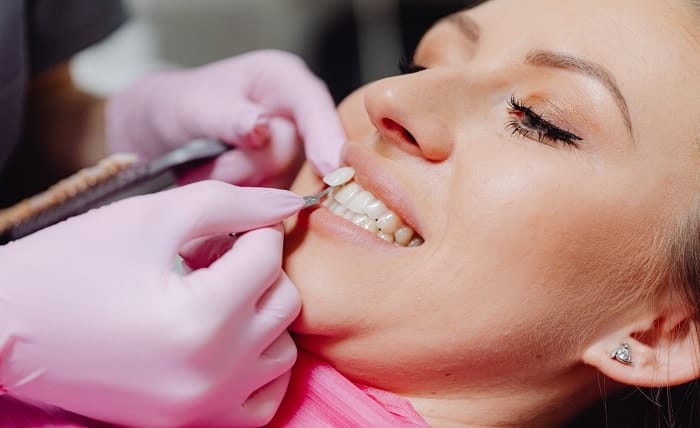Missing Teeth? Discover Your Options for Restoration and Replacement

Both your oral health and quality of life can be greatly affected by missing teeth. Whether it’s due to an accident, decay, or other reasons, the gap left by a missing tooth or teeth can cause problems. These gaps can affect the way you eat, speak, and even smile.
In this post, we’ll explore various options for restoring and replacing missing teeth, helping you make an informed decision about your dental health.
Understanding the Causes
Common Reasons for Tooth Loss
Tooth loss is more common than you might think, and it can happen to anyone. One of the leading causes is gum disease, a condition that damages the soft tissue and bone supporting the teeth. If left untreated, gum disease can lead to tooth loss. Another common cause is tooth decay. If cavities are not addressed promptly, they can lead to severe damage that necessitates extraction. Accidents and injuries can also result in lost teeth, whether from sports activities or unexpected falls. Finally, certain medical conditions and treatments, such as diabetes and chemotherapy, can increase the risk of losing teeth.
Restorative Options
Dental Implants
Dental implants are a popular and effective solution for replacing missing teeth. They involve inserting a titanium post into the jawbone, which acts as a root for the replacement tooth. Over time, the bone integrates with the implant, providing a stable foundation. Dental implants are known for their durability and natural appearance.
Bridges
A dental bridge is another option for replacing missing teeth. A bridge consists of one or more artificial teeth, anchored by crowns on the adjacent natural teeth. This method is ideal if you have healthy teeth on either side of the gap. Bridges can restore your smile and improve your ability to chew and speak.
Dentures
Dentures are removable replacements for missing teeth. They come in two main types: partial and full. Partial dentures are used when some natural teeth remain, while full dentures replace all teeth in the upper or lower jaw. Dentures are a cost-effective solution and can be made to look very natural.
The Procedure
What to Expect from Each Restoration Method
Understanding the procedure involved in each restoration method can help you prepare mentally and physically. For dental implants, the process begins with a thorough examination and planning. The implant is then surgically placed into the jawbone, and a healing period follows. Once the implant integrates with the bone, a crown is attached. The entire process can take several months but results in a permanent solution.
Bridges
The procedure for getting a dental bridge involves preparing the adjacent teeth by removing a portion of enamel to accommodate the crowns. Impressions are taken and sent to a lab to create the bridge. Once ready, the bridge is fitted and adjusted for comfort.
Dentures
If you opt for dentures, the process starts with taking impressions of your mouth. These impressions are used to create a model, ensuring a precise fit. Once the dentures are ready, adjustments are made to ensure comfort and functionality.
Cost and Insurance
The cost of tooth restoration varies depending on the method chosen. Dental implants tend to be the most expensive option, ranging from $3,000 to $5,000 per tooth. Bridges are generally less expensive, with costs ranging from $500 to $1,200 per tooth. Dentures are the most cost-effective, with prices ranging from $300 to $5,000 depending on the type and quality.
In Shelby Township, dental implants can be covered by dental insurance, but typically only the lower end of the cost range. Bridges and dentures are often covered more extensively, depending on your provider and plan. It’s essential to talk to your dentist and insurance provider about coverage options before making a decision.
Maintenance and Aftercare
Longevity of Your Restoration
Maintaining your restored teeth is crucial for their longevity. For dental implants, regular brushing and flossing are essential to prevent infection around the implant. Regular dental check-ups are also important to monitor the health of your implants. Bridges require similar care to natural teeth, including brushing, flossing, and routine dental visits. Dentures need to be cleaned daily and soaked in a denture cleaner overnight. It’s also important to handle them carefully to avoid damage.
Promoting Oral Health
In addition to caring for your restorations, promoting overall oral health is essential. This includes maintaining good oral hygiene habits like brushing twice a day, flossing daily, and using mouthwash. A balanced diet rich in vitamins and minerals can also support healthy teeth and gums.
Conclusion
Missing teeth can have a significant impact on your life, but numerous options are available to restore your smile and functionality. Whether you opt for dental implants, bridges, or dentures, each solution has its own benefits and considerations. Consulting with a dental professional can help you decide which option is best for your unique situation. Remember to maintain good oral hygiene and visit your dentist regularly for optimal oral health. Your smile is worth it!




